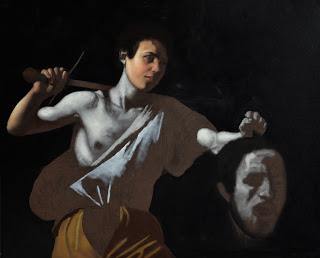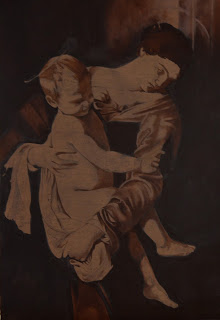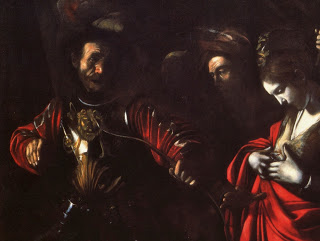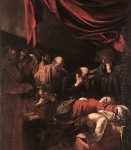Michelangelo Merisi of Caravaggio, known as simply Caravaggio, was the great painter of the counter reformation. A contemporary of Galileo and Shakespeare, he was the first artist in history whose paintings are directly concerned with his life.
In his later years Caravaggio developed a process which allowed him to work very efficiently – important as he was on the run for much of his last years.
I teach this method at the Angel Academy in Florence, Italy. For more info:
I will share what I have discovered about his process over the next few blog posts.
The begin, the canvas is to be toned with a warm brown, mid-tone in value.
The drawing is then rendered with umbers. The paint should be applied thinly, varying opacity where needed. The goal is to use 2 or 3 values to describe the image:
When studying “the Martyrdom of St. Ursula”, one can get an idea of the next step:
This step, the underpainting with white, will be described in the next post.










